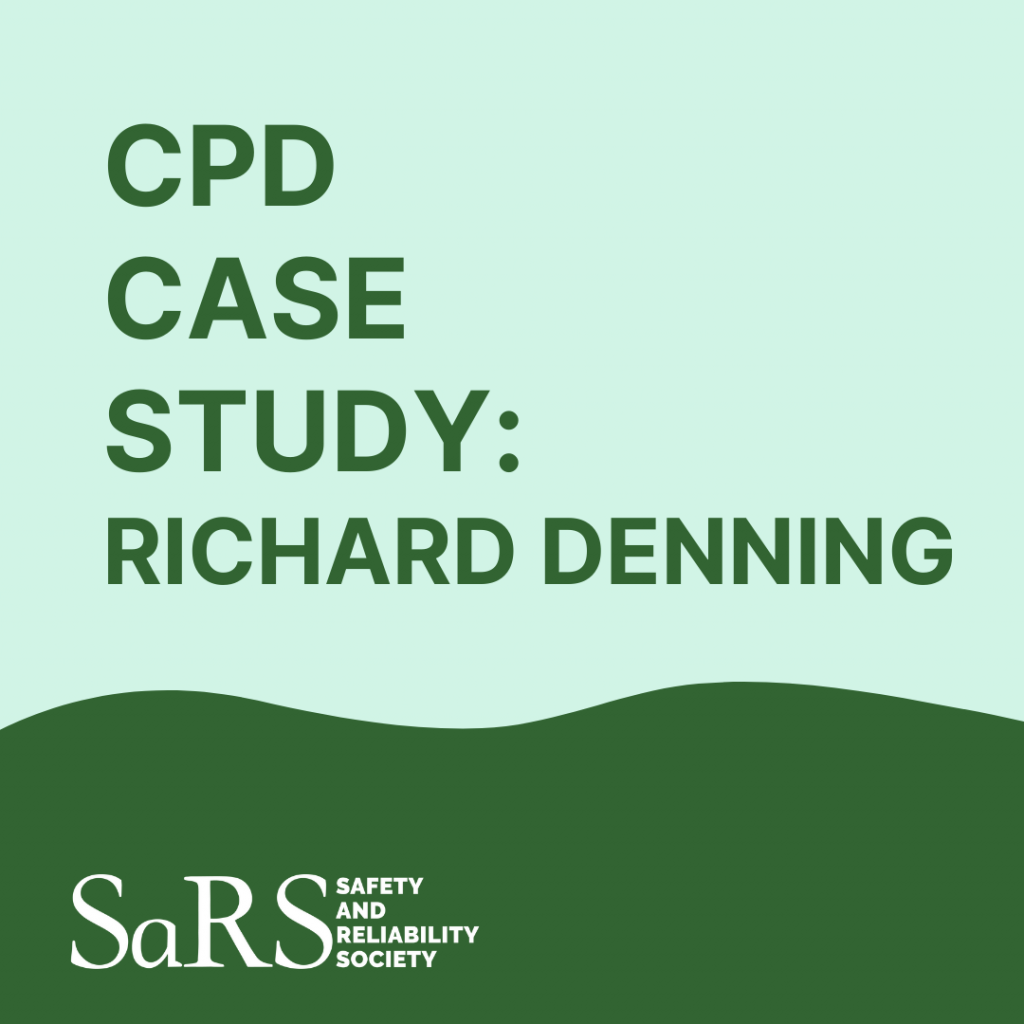CPD Case Study – Richard Denning

As a professional engineer, I am committed to Continuing Professional
Development (CPD) not the box ticking I have done x hours of training courses in the last year, or the I need to do something just in case I get audited (UK professional engineering institutions have to audit their registrants CPD) or the utter panic when my name is selected for review. Rather I undertake CPD because I want to be the best that I can be and recognise that most days are a learning day, and if treated correctly will improve my skills, knowledge or experience which in turn will make me a more rounded individual, increasing my employability but more importantly giving me opportunities to take on activities which I find satisfying
Many people see CPD as being about formal training activity be that classroom based, computer based or “book based”, I see it as being much more than this and would estimate that maybe 10% of development in recent years has been formal, I have also developed from working with great people where some of their approach to problems has rubbed off or where they either shown me how to do something or more likely have helped me to tackle a new area or experience, but much more of my development has been through trying new things or taking on new activities. Of course many development opportunities can be a combination of all 3, trying something new getting a friend to assist and perhaps research better ways of doing things.
To me CPD isn’t just about learning or doing the new thing, it is about structuring what you do by proactively seeking out opportunities to either improve on weaknesses/gaps or to reinforce existing strengths and then reflecting on what you have “learnt” and of course recording this so that if you do get audited you have the records of what you have done.
In many ways I have a split personality – Richard in his day job and Richard the President of SaRS, of course the two are intertwined skills from the day job helping in the president role while skills developed from being on a member of SaRS and council have improved my capability in the day job. SaRS has given me a surprising number of development opportunities including:
· Reviewing papers for the Journal – not only do I learn new things but I also have to critique the paper in such a way that the author does not take the comments as criticism but as suggestions as to how to improve their paper to make it more relevant/understandable to our readership
· Guest Editing special editions of the journal pulling together experts in an area and persuading them to produce a paper on a subject of my choice
· Presenting at national and regional SaRS events – a chance to develop my presenting skills, consolidate my knowledge/experience and then test it against others in the field
· Reading the Journal and reflecting on lessons from other areas
· Meeting with experts from other areas and learning from their experience
· Working with volunteers – improved my communication skills
Richard Denning
